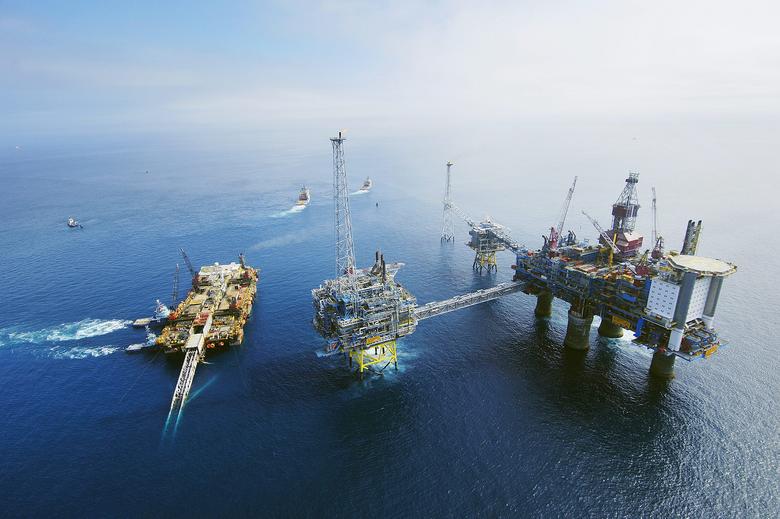
NORWEGIAN GAS FOR EUROPE

Citing his support for development of a competitive natural gas market in Europe, Norway's minister of petroleum and energy, Tord Lien, said a well functioning market in Europe is crucial for the maximisation of Norwegian assets. "Gas is there if Europe needs it."
Lien spoke at an event on February 25 at the Atlantic Council. Norway is the second biggest gas supplier after Russia to the continent. Europe, he added, receives one third of its gas resources from Norway.
Norway has more than 100 years' experience of industrial activities in the waters of the Norwegian arctic, he said, adding, that the country has been producing oil and gas for more than 35 years and already has an LNG facility in operation in the region as well as oil fields under development.
Because last year Norway's gas pipeline system connecting Norwegian resources to the European market had past the Arctic circle, Lien said, "so in a few years we will be able to transport gas in the pipeline system from our Arctic region to our customers in Europe."
Continued development
As Norway's policy is to maintain high levels of activity in the upper north, he said new discoveries are essential to maintain long-term production there, which means the country will continue to award more acreage, both in mature and frontier areas.
"More than 30% of our untapped gas resources are estimated to be in the northern region. In the coming years, companies will have to decide on how to expand gas export capacities from the area."
According to him, there are two alternatives for doing this: connecting a gas pipeline from the northernmost region to existing systems, which he called "cost effective," or liquefaction and export of LNG by ship, which he said would offer more market flexibility to the producer. "If they feel confident about future gas demand from the EU, the likelihood of the pipeline option increases," he said.
Competition good
Lien said that Norway does not see LNG emanating from the US as a threat. "We see it as competition; not as a threat. We are used to competing and think that we just have to adapt to the changes coming on. "Competition in a well functioning market makes everyone better, doesn't it?" he asked.
Companies on the Norwegian continental shelf, he said, have a great ability to adapt to changing market conditions, and diversify supply sources, which he said was a prerequisite for a well-functioning market. Lien added that robust security of supply of natural gas maintains the attractiveness of gas.
"We are moving towards a global gas market, probably for the first time in history, with so many resources coming out of Asia-Pacific, soon from projects in the US, and also from the east coast of Africa, so we'll see a global gas market. That helps create confidence in gas as an energy carrier, which is good for Norway, and leads to more transparency in markets, which is good for producers in the long-term."
He added that if a country has access to numerous sources of gas there is no reason to be afraid of anyone.
Gas for sustainability
Lien said that in light of COP 21 and sustainable development goals, the world population is growing and everyone deserves affordable energy that should also be sustainable. Norway's stance, he said, is based on environmental stability, energy systems that support economic growth, and affordability.
While he said energy efficiency is important, Lien asserted that oil and gas will play a role. "Fossil fuels are likely to be the backbone of energy systems for decades." he added that gas production is part of the solution to climate change.
According to him, a global price for CO2 is necessary. He cited Norway's carbon tax that had reduced its emissions in the continental shelf by 5 million tonnes, which he said was an achievement relatively speaking – 10% of total emissions in Norway. Norway, he added, had been arguing for a global price for CO2 emissions for many decades.
ETS and coal displacement
Mentioning Europe's emissions trading system as the "main instrument" for addressing climate change, he said, adding that Norway supports the strengthening of the ETS as a "technology neutral and cost effective driver for low carbon investments."
Other alternatives, he added, meaning prohibitions and subsidies, he characterised as "betting on taxpayers' money."
Replacing coal with gas, he called the "first step" as, although global coal use is one-third of global energy, it can be easily replaced by gas. "It is a fast and cost-effective way, effectively backing up intermittent sources. Gas should be used to a greater extent."
He pointed to the success that the US had had in replacing coal with gas, and noted that the British government was following that lead.
EU on the right path
Energy security, Lien said, is at the heart of the debate. In that context, he offered support for Norway's main export competitor to Europe. "Based on historical experience, gas from Russia has been a reliable source for Europe," he said, adding that there had not been any major disruption to supplies.
Still, he observed the infrastructure developments in Europe. He said, "In the last 15 years new construction of assets has enhanced gas security, but some still rely on a single source of supply."
The EU, he said, should continue its measures of implementing infrastructure and an efficient regulatory network.
-----
More:




